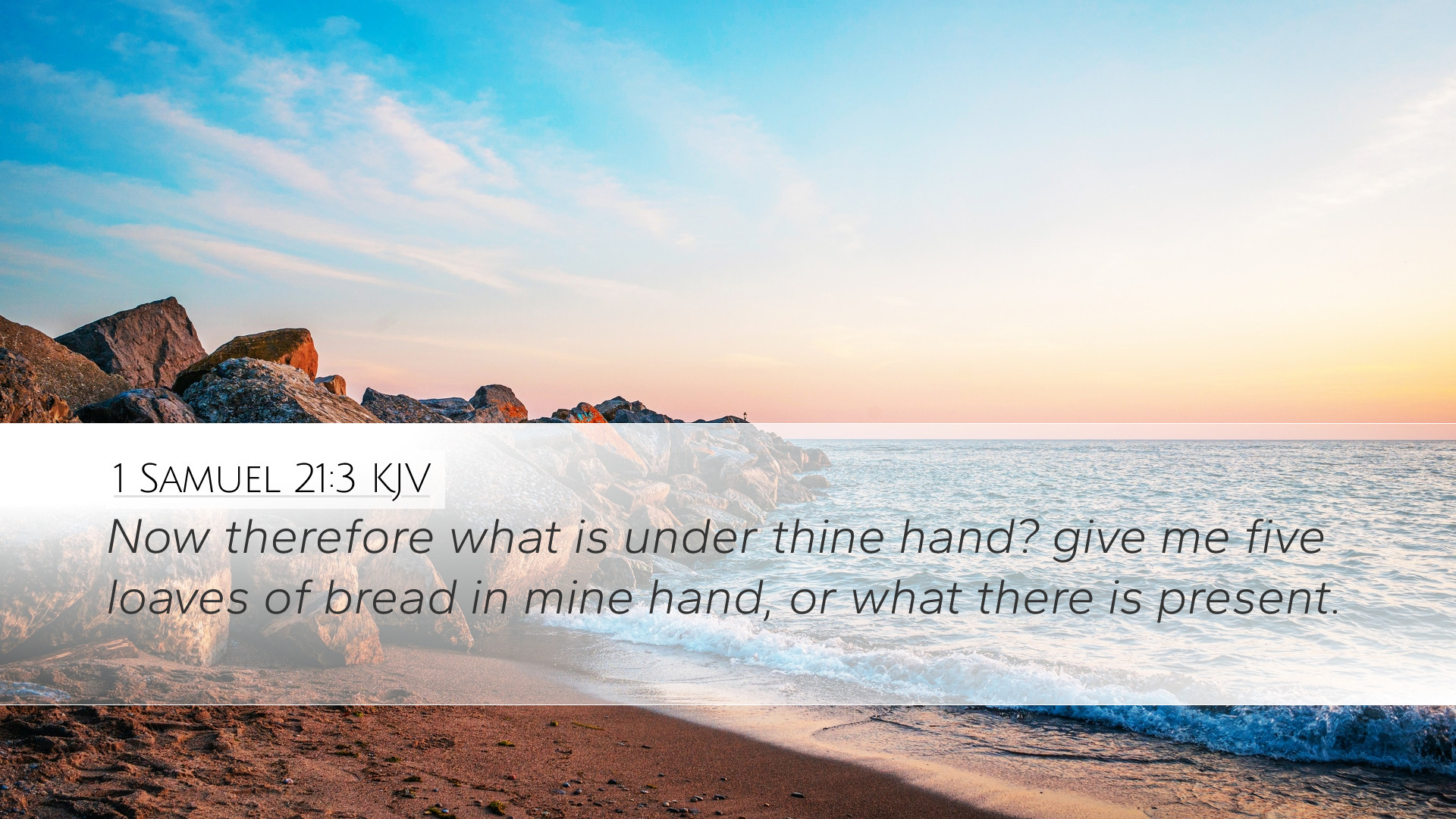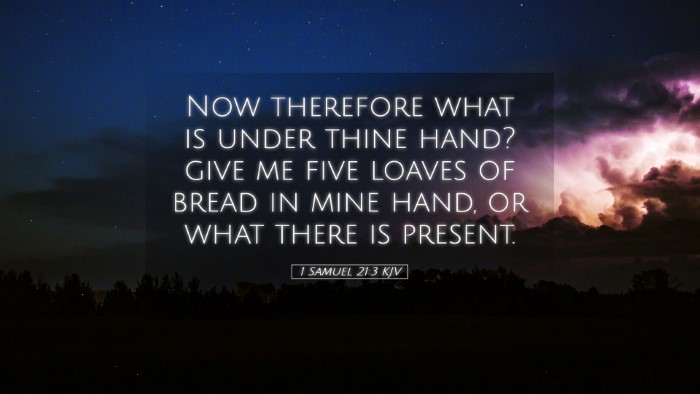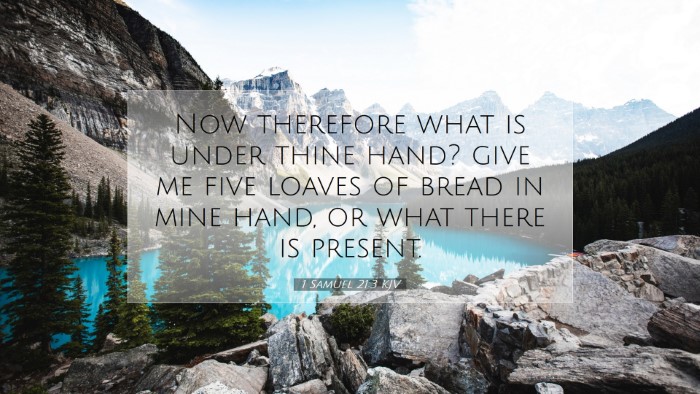Commentary on 1 Samuel 21:3
Verse Context: In 1 Samuel 21:3, David, fleeing from Saul, asks Ahimelech the priest for provisions and weapons. This moment illustrates David's dire circumstances and foreshadows his eventual leadership.
Historical Background
This passage occurs during a tumultuous period in Israel's history. David, anointed by Samuel to be king, is on the run from Saul, who sees David as a threat to his throne. David’s request for sustenance and armor underscores both his physical needs and the political implications of his flight.
Commentary Insights
Matthew Henry’s Commentary
- David's Desperation: Henry emphasizes David's predicament. He is in a state of flight and facing the consequences of his anointing by Samuel while still being pursued by Saul.
- Faith in God's Provision: David’s request signifies a reliance on God. Henry draws parallels to God's provision in desperate circumstances, highlighting that even in exile, God is present.
- The Importance of God’s House: In seeking Ahimelech, David demonstrates the significance of communal worship and support in times of trouble, reflecting a deeper spiritual need.
Albert Barnes' Notes on the Bible
- Practical Implications: Barnes notes that the act of David approaching Ahimelech illustrates a necessary action for believers in crises: seeking help from God’s leaders.
- Possible Misinterpretations: Barnes also highlights that David’s request raises questions about his wisdom in revealing his situation, which could be interpreted as a lack of trust in God’s protection.
- The Bread of the Presence: Describes how the special bread that David sought pointed towards God’s holiness and presence, as it was intended for the priests, a reflection of how Jesus later becomes the true bread of life.
Adam Clarke's Commentary
- Physical and Spiritual Needs: Clarke underlines the dual nature of David’s request. He needed both food and a weapon, symbolizing the physical and spiritual struggles inherent in leadership and righteousness.
- David's Fear and His Justification: Clarke discusses David's fear of Saul which led him to lie about his mission. He suggests that this act of deception has been a topic of much theological debate.
- Ahimelech's Role: Highlights Ahimelech’s response as a crucial act of hospitality and loyalty to David, which ultimately cost Ahimelech his life, reflecting the heavy burdens placed on spiritual leaders during times of conflict.
Theological Themes
Human Vulnerability
David’s circumstances elucidate the human condition of vulnerability and the need for community support. It speaks to each reader's necessity to seek assistance from those spiritually knowledgeable in times of distress.
The Nature of Divine Dependence
David’s request serves as a model for dependence on divine provision. Despite his ingenuity to escape Saul, it is ultimately God’s providence that sustains both him and the faithful around him.
Leadership in Crisis
The narrative highlights the complexities of leadership, particularly the moral dilemmas faced by those in authority. David’s actions provoke discussion on ethics, faith, and the sacrificial nature of true leadership.
Conclusion
This verse is rich with lessons on human need, divine provision, and the reality of spiritual leadership in tumultuous times. As pastors, students, and scholars delve into this passage, it compels a reflection on how faith intersects with daily struggles and the importance of seeking God in moments of dire need.


